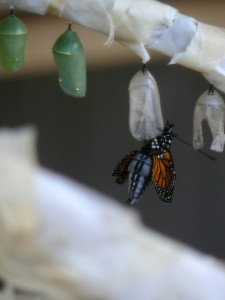Transitions
 Transitions. Transitions are always difficult whether you are a two-year old learning to toilet train, a 13-year old transitioning to high school, or, a 60 year old person retiring. Transitions deal with change. Change introduces conflict and, too much conflict leads to anxiety. Depending upon one’s attitude, a transition can be seen as an opportunity for positive movement, or, a bummer. This is based on one’s personality. Are you a half-empty type or a half fuller, a transition can be a blessing or a perceived curse.
Transitions. Transitions are always difficult whether you are a two-year old learning to toilet train, a 13-year old transitioning to high school, or, a 60 year old person retiring. Transitions deal with change. Change introduces conflict and, too much conflict leads to anxiety. Depending upon one’s attitude, a transition can be seen as an opportunity for positive movement, or, a bummer. This is based on one’s personality. Are you a half-empty type or a half fuller, a transition can be a blessing or a perceived curse.
The human brain is a sponge of experience mixed in with a bunch of pre-determined genetics. Experience is the product of intellect and emotion. Put these things together and you get Personality. Each new experience or transition is based on previous experience . This is the mind’s way to protect itself from surprise and vulnerability. After all, who likes to feel vulnerable?
The problem however is that despite the positive wonders of the mind, it cannot predict the future. It can only guess and it can be wrong. So, when one is going through a period of transition, having an open mind is the first step to getting through it with less, rather than more anxiety.
The truth about transitions however is that they are usually in response to growth and further development. When a child transitions from Kindergarten to first grade, it is a signal of greater maturation and then end result is commonly enhancement, not a backwards step. But, clearly how past transitions have been experienced will weigh on how well or not a person will approach a new transition. This is an example of how prior experiences will influence present transitional attitude.
However, the key to successful transitions has to do with mastering the new tasks at hand and some are easier than others. For example, one of the major tasks of the transitioning middle school child is tolerating the changes of Puberty. Here, the child’s body and mind experiences biological changes whether or not the mind is ready or not. The child who can better withstand these manifestations fairs better than those who do not. Here, the prior experiences of transitioning are mixed in with present conditions such as parental support.
The keys to successful transitioning is a combination of attitude and embracing the new challenges the person is facing. Peer referencing and support is also vital in any sort of change as the individual does not feel alone and the transition is normalized. Take the college-bound Freshman. Faced with mastering greater independence from their parents, managing daily life away from home, and tolerating novelty is always made easier by affiliating with others doing the same.
The combination of maintaining a positive attitude, focusing on the tasks at hand, affiliating with peers going through the same transitional phase, and following through on new behaviors and experiences, lays new impressions on the mind of the individual allowing for greater, rather than less, adaptation and allows transitions to be enhancements rather than drawbacks.
Regressions, or setbacks are normal and part of the process as this is how the mind commonly responds to change. Recognizing this tendency and pushing through the tendency to repeat is essential to instilling change. This is where keeping the new goals in mind and working with supportive others can limit setback and optimize change. Once new patterns are set, new self-esteem is established which reinforces these new changes and over time new behaviors are developed.
______________________________________________________________
Dr. Keith Kanner is a Licensed and Board Certified Clinical Child, Adolescent, and Adult Psychologist and Psychoanalyst. In addition to a full-time private practice in Rancho Santa Fe, California, he is an Assistant Clinical Professor of Psychiatry in the School of Medicine at the University of California San Diego where he teaches both human development and also trains medical students how to better understand and relate to their patients. He also serves as the Director of Clinical Counseling for La Jolla Country Day School in La Jolla, California, and is a Clinical Professor at The San Diego Psychoanalytic Society and Institute. Dr. Kanner also sits on the National Board of Directors for Kids Korps USA, which is the largest organization in the country that teaches children and adolescents the importance of volunteering to help the community at large. As a father of three children, he is also a dedicated baseball, football, and soccer coach.










You must be logged in to post a comment Login